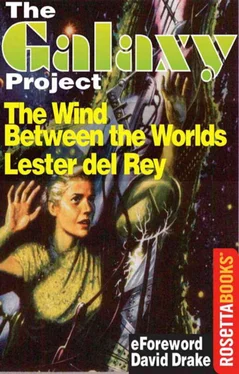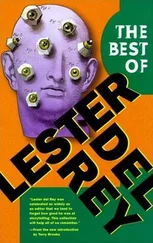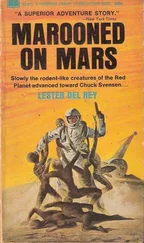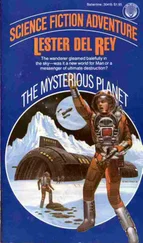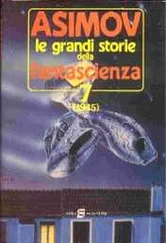But above everything was the black headline:
BOMB TRANSMITTER, SAYS PAN-ASIA
The ultimatum issued by Pan-Asia was filled with high-sounding phrases and noble justification, but its basic message was clear enough. Unless the loss of air—air that belonged to everyone—was stopped and all future transmitting of all types halted, together with all dealings with “alien anti-terrestrials,” Pan-Asia would be forced to bomb the transmitters, together with all other resistance.
“Maybe…” Flavin began doubtfully, but Vic cut him off. His faith in mankind’s right to its accidental niche in the Galactic Council wasn’t increasing much.
“No dice. The field is a space-strain that is permanent, unless canceled by the right wave-form. The canceling crystal is in the transmitter. Destroy that and the field never can be stopped. It’ll keep growing until the whole Earth is gone. Flavin, you’d better get those experts here, fast!”
Vic sat in the car the next morning, watching the black cloud that swirled around the station, reaching well beyond the old office. His eyes were red, his face was gray with fatigue, and his lanky body was slumped onto the seat. Pat looked almost as tired, though she had gotten some sleep. Now she took the empty coffee cup and thermos from him. She ran a hand through his hair, straightening it, then pulled his head down to her shoulder and began rubbing the back of his neck gently.
Ptheela purred approvingly from the other side, and Pat snorted. “Get your mind off romance, Ptheela! Vic’s practically out on his feet. If he weren’t so darned stubborn, this should make him go to sleep.”
“Romance!” Ptheela chewed the idea and spat it out. “All spring budding and no seed. A female should have pride from strong husbands and proven seeding.”
Vic let them argue. At the moment, Pat’s attention was soothing, but only superficially. His head went on fighting for some usable angle and finding none. He’d swiped all the knowledge he could from Ptheela, without an answer. Plathgol was more advanced than Earth, but far below the Betz II engineers, who were mere servants of the Council.
No wonder man had resented the traffic with other worlds. For centuries he had been the center of his universe. Now, like the Tasmanians, he found himself only an isolated valley of savages in a universe that was united in a culture far beyond his understanding. He’d never even conquered his own planets; all he’d done was to build better ways of killing himself.
Now he was reacting typically enough, in urgent need of some race even lower, to put him on middle ground, at least. He was substituting hatred for his lost confidence in himself.
Why learn more about matter transmitting when other races knew the answers and were too selfish to share them? Vic grumbled, remembering the experts. He’d wasted hours with them, to find that they were useless. The names that had been towers of strength had proved no more than men as baffled as he was. With even the limited knowledge he’d pried from Ptheela, he was far ahead of them—and still further behind the needs of the problem.
The gun Flavin had insisted he wear was uncomfortable, and he pulled himself up, staring at the crew of men who were working as close to the center of wind as they could get. He hadn’t been able to convince them that tunneling was hopeless. All they needed was a one-millimeter hole through the flooring, up which blasting powder could be forced to knock aside the glass fragment. They refused to accept the fact that the Betz II shielding could resist the best diamond drills under full power for centuries. He shrugged. At least it helped the general morale to see something being done; he’d given in finally and let them have their way.
“We might as well go back,” he decided. He’d hoped that the morning air and sight of the station might clear his head, but the weight of responsibility had ruined that. It was ridiculous, but he was still in charge.
Flavin reached back and cut on the little television set. With no real understanding, he was trying to learn tolerance of Ptheela, but he felt more comfortable in front, beside the chauffeur.
Pat caught her breath, and Vic looked at the screen, where a newscast was showing a crowd in Denver tearing down one of the Earth-designed intercity teleports. Men were striking back at the menace blindly. A man stood up from his seat in Congress to demand an end to alien intercourse; Vic remembered the fortune in interstellar trading of levo-rotary crystals that had bought the man’s seat and the transmitter-brought drugs that had saved him from death by cancer.
There were riots in California, the crackpot Knights of Terra were recruiting madly, and murder was on the increase. Rain had fallen in Nevada. There were severe weather disturbances throughout the country, caused by the unprecedented and disastrously severe low over Bennington. People were complaining of the air, already claiming they could feel it growing thinner, though that was sheer hysterical nonsense. Also, the Galactic Envoy was missing.
The editorial of the Bennington Times came on last, pointing a finger at Vic for changing the circuits, but blaming it on the aliens who hoarded their knowledge so callously. There was just enough truth in the charge to be dangerous. Bennington was close enough to the transmitter to explain the undertones of lynch law that permeated the editorial.
“I’ll put a stop to that,” Flavin told Vic angrily. “I’ve got enough pull to make them pull a complete retraction. But it won’t undo all the harm.”
Vic felt the automatic, and it seemed less of a nuisance now. “I notice no news on Pan-Asia’s ultimatum.”
“Yeah. I hear the story was killed by Presidential emergency powers, and Pan-Asia has agreed to a three-day stay—no more. My information isn’t the best, but I gather we’ll bomb it ourselves if it isn’t cleared up by then.”
Vic climbed out at the local station office, with the others trailing. In the waiting room, a vaguely catlike male from Sardax waited, clutching a few broken ornaments and a thin sheaf of Galactic credits. One of his four arms was obviously broken and yellow blood oozed from a score of wounds.
But he only shrugged at Vic’s whistled questions, and his answer in Code was unperturbed. “No matter. In a few moments I ship to Chicago, then home. My attackers smelled strongly of hate, but I escaped.” His whistle caught at a signal from the routing office, and he hurried off, with a final sentence. “They will survive, I am told.”
Remembering the talons on the Sardaxan’s hands, Vic grinned wryly. They were a peaceful race, but pragmatic enough to see no advantage in being killed.
Vic threw open the door to his little office and the four went in. It wasn’t until he started toward his desk that he noticed his visitor.
The Galactic Envoy might have been the robot he claimed, but there was no sign of it. He was dressed casually in expensive tweeds, lounging gracefully in a chair, with a touch of a smile on his face. Now he got up, holding out a hand to Vic.
“I heard you were running things. Haven’t seen you since I helped pick you for the first year class, but I keep informed. Thought I’d drop by to tell you the Council has given official approval to your full authority over the Earth Branch of Teleport Interstellar, and I’ve filed the information with the U. N. and your President.”
Vic lifted his head. “Why me?”
“You’ve learned all the theory Earth has, you’ve had more practical experience with more stations than anyone else, and you’ve undoubtedly picked Ptheela’s brains dry by now. You’re the obvious man.”
Читать дальше
